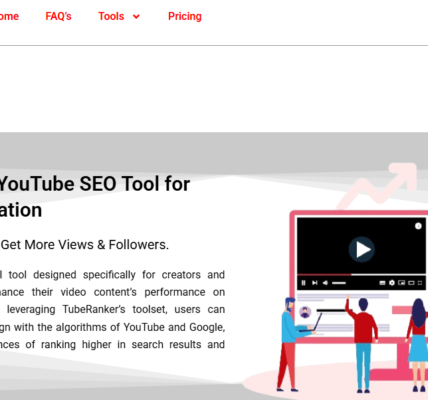Introduction
Marketing is an essential aspect of any business, driving sales, customer engagement, and brand recognition. The modern marketing landscape is highly competitive, making it crucial for businesses to understand and implement key characteristics of marketing. Whether it’s digital marketing, content marketing, or traditional methods, successful marketing strategies have several defining traits.
This article delves into the characteristics of marketing, exploring its fundamental elements, strategies, and significance in today’s business environment. If you’re looking to improve your marketing approach, understanding these core features will give you a competitive edge.
What is Marketing?

Marketing is the process of promoting, selling, and distributing products or services to consumers. It involves researching market trends, understanding customer needs, and crafting strategies that create demand. Modern marketing relies on both digital and traditional methods, combining creativity with data-driven decision-making.
Characteristics of Marketing: A Strategic Overview
1. Customer-Centric Approach
Marketing revolves around the customer. Every successful marketing strategy focuses on identifying and satisfying customer needs. Businesses use market research, customer feedback, and data analytics to create personalized marketing campaigns that engage consumers effectively.
✅ Quick Fact: Companies that prioritize customer experience generate 60% more revenue than competitors.
2. Value Creation
A strong marketing strategy provides value to customers through high-quality products, exceptional service, and engaging content. Marketers focus on problem-solving and offering unique selling propositions (USPs) that differentiate their brand.
3. Market Research-Based Strategies
Informed decision-making is a hallmark of successful marketing. Market research helps businesses analyze customer behavior, preferences, and trends. It also allows for competitor analysis, enabling brands to develop competitive advantages.
4. Integrated Marketing Communications
Marketing is not limited to a single channel. Successful businesses use multiple platforms such as social media, email marketing, content marketing, and traditional advertising to reach their audience effectively.
5. Exchange Process
Marketing facilitates an exchange between businesses and customers. Companies offer products or services, and in return, customers provide payment, loyalty, and brand advocacy.
6. Goal-Oriented Approach
Marketing strategies are designed to achieve specific objectives. These goals may include increasing sales, brand awareness, lead generation, customer retention, or market expansion.
✅ Quick Fact: Companies with well-defined marketing goals are 30% more likely to achieve higher revenue growth.
7. Competitive Nature
Marketing exists in a competitive landscape. Businesses must analyze competitors and differentiate their offerings through branding, pricing, and customer experience. The use of unique value propositions (UVPs) gives companies an edge.
8. Data-Driven and Measurable
The effectiveness of marketing campaigns depends on performance tracking and data analysis. Marketers rely on KPIs (Key Performance Indicators) such as conversion rates, website traffic, and customer engagement to optimize their strategies.
9. Persuasive Communication
Marketing uses persuasive techniques, including storytelling, social proof, and emotional appeal, to influence consumer decisions. Effective messaging builds trust and encourages potential buyers to take action.
✅ Quick Fact: 92% of consumers trust recommendations from peers over advertising.
10. Relationship Building
Modern marketing focuses on building long-term customer relationships. Loyalty programs, personalized offers, and excellent customer service play a key role in customer retention and advocacy.
Modern Marketing Approaches
Multi-Channel Marketing
Marketing strategies are executed across various platforms, including digital (social media, SEO, PPC advertising) and traditional (TV, radio, print). A multi-channel approach ensures a wider reach and improved engagement.
Innovation and Technology in Marketing
Emerging technologies such as artificial intelligence (AI), automation, and big data analytics are transforming marketing. AI-driven chatbots, personalized email marketing, and predictive analytics help businesses create more effective campaigns.
✅ Quick Fact: Companies using AI-powered marketing see a 50% increase in lead generation.
Emotional and Storytelling Marketing
Brands that connect emotionally with consumers create stronger bonds. Storytelling in marketing enhances brand loyalty and consumer trust. Businesses that use compelling narratives in their campaigns see higher engagement.
Importance of Ethical and Socially Responsible Marketing
Consumers today expect brands to be socially responsible. Companies that practice ethical marketing gain trust and long-term customer loyalty. Sustainability, corporate social responsibility (CSR), and transparency are crucial in modern marketing.
FAQs (Frequently Asked Questions in English)
1. What are the key characteristics of marketing?
The main characteristics of marketing include customer-centric strategies, value creation, data-driven decisions, competitive analysis, and relationship building.
2. Why is customer engagement important in marketing?
Customer engagement helps build brand loyalty, improves retention rates, and increases sales by maintaining strong relationships with consumers.
3. How does digital marketing differ from traditional marketing?
Digital marketing uses online platforms like SEO, PPC, and social media, while traditional marketing relies on print, TV, and radio advertising.
4. What role does storytelling play in marketing?
Storytelling enhances emotional connection with customers, making brands more relatable and improving customer trust and engagement.
5. How can businesses measure marketing success?
Marketing success can be measured using Key Performance Indicators (KPIs) like conversion rates, ROI, website traffic, and customer feedback.
Conclusion
Understanding and implementing these characteristics of marketing will help businesses create effective marketing campaigns. The combination of customer focus, data-driven decision-making, persuasive communication, and innovation makes marketing an essential business function.
To stay ahead in today’s competitive world, businesses must continuously adapt to changing market trends and embrace new marketing technologies. By doing so, they can create value for their customers, establish strong brand identity, and achieve sustainable growth.
✅ Final Quick Fact: 64% of consumers expect brands to connect with them on a personal level. Personalization in marketing can increase sales by up to 20%.
Also Read Here:
TubeRanker: The Ultimate YouTube SEO Tool for Video Success



